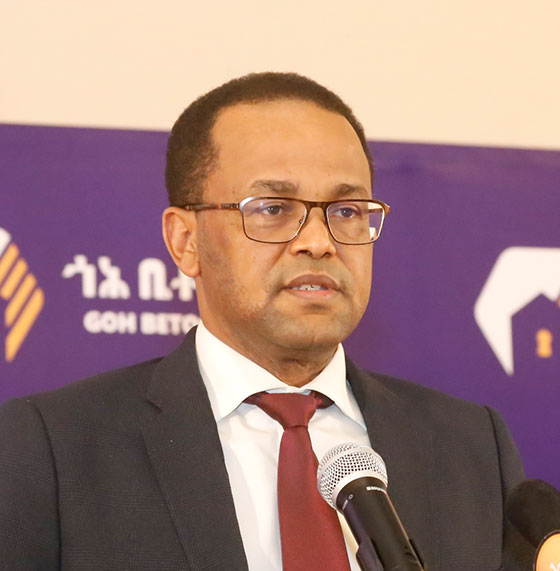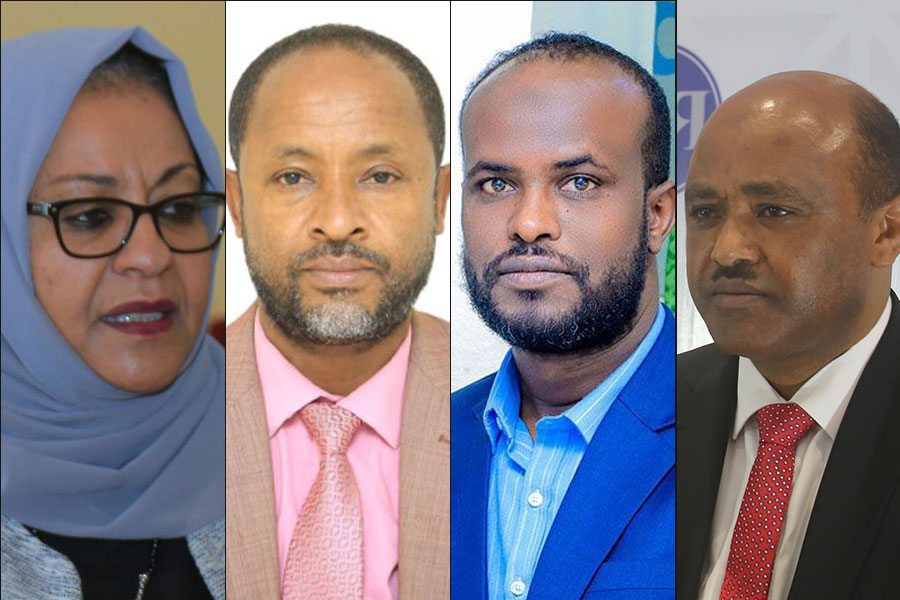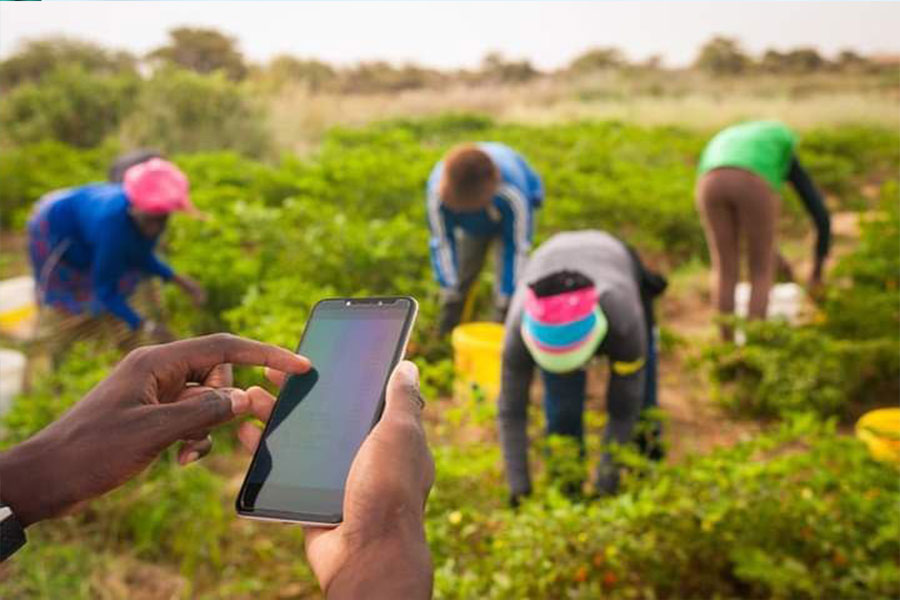
Radar | Oct 19,2019
Two weeks ago was a feel good moment for Dereje Mideksa, director general of Modjo Dry Port. He has been struggling to kickstart a monumental expansion project since he was appointed in 2019. A fifth boss replacing Meheretab Teklu, who oversaw operations at Modjo Dry Port for six years, Dereje followed the tribulation federal authorities have gone through to secure an extension to the project's timeline and an additional fund from the financier.
The extension came, but not the financing.
The World Bank Directors have approved a two-year extension of an expansion project at the country's largest dry port facility to finalise civil works. However, authorities' request for an additional 50 million dollars in funding remains pending.
“Additional financing for the project has not been submitted to, or approved by, the World Bank Group of Executive Directors," reads a response from the Bank.
Officials at the Ministry of Finance had applied for the financing last June on behalf of the Ethiopian Maritime Authority (EMA).
The expansion project is part of a trade logistics programme launched five years ago to increase the facility's operational efficiency, located 80Km southeast of Addis Abeba. Although the World Bank approved 150 million dollars in credit, work did not begin until last year. Close to 80pc of the funding was apportioned for infrastructure. The loans will mature in 38 years and carry a six-year grace period. The World Bank had disbursed close to 35 million dollars by last year.
The deal between the federal government and the Bank scheduled the selection of a contractor three years ago. However, China Civil Engineering Construction Corporation was handed the contract last July for over 4.7 billion Br.
“Progress has been slow," said the Director General. "The feasibility and design work kicked off late.”
In 2019, Sellhorn, a German consulting company, was hired to design and conduct feasibility studies, but it delayed its work by a year, preventing the project office from hiring a contractor. Last month, EPTISA, a Spanish consultancy firm, was hired to supervise the project for 100 million Br. Before selecting the consultant, experts at the Ethiopian Trade Logistics Project Office, which oversees the project under the Maritime Authority, carried out supervision works.
The slow pace has pushed the deadline for upgrading the dry port by more than two years to November 2024. Lack of progress has also brought on cost escalations over the past four years, resulting in a need for additional financing. Officials say over a third of the work has been completed. Nearly 50 pieces of port machinery have been bought, while soil testing works and the construction of camps in the area are complete, according to Berhan Kidan, a social safeguarding consultant at the Authority.
Laying on a 63hct of land, Modjo Dry Port first opened in 2009. Its terminal can accommodate nearly 21,000 shipping containers, though federal officials are keen to see the capacity expanded in anticipation of growth in international trade. They hope to see the 17 million tonnes in import and export trade double in the coming decade. Imports, including 3.7 billion tonnes of petroleum products, account for 94pc.
The dry port's capacity is expected to grow sixfold when the 120hct expansion is finalised. It will dwarf the capacities of seven other dry ports spread across the country, including Qality, Meqelle, Dire Dawa, and Semera, which can accommodate up to 24,000 containers.
Over 100 households were relocated to make room for the expansion project and paid a little more than 100 million Br in compensation.
The start of the expansion came in the wake of a COVID-19 induced logistics crisis that has left importers in an uproar over skyrocketing shipping tariffs. Getting goods shipped into the country becomes challenging for the shortage of shipping containers. The average dwell time of containerised general cargo at Modjo Dry Port was cut by nearly half to seven days last year, the Ministry of Transport & Logistics claims. Dereje says it is possible to cut the waiting time even further.
"Importers' inability to clear their containers on time has contributed to the congestion at the dry port," he told Fortune.
Liku Damte is the acting coordinator at Solomon Zewdu Shipping & Freight Forwarding, incorporated over two decades ago. He partly blames importers for the congestion observed at the dry port.
"But it's not all their fault," he said.
He observed that slow customs inspection and clearance procedures, which are carried out manually due to a lack of cargo scanning machinery, are part of the problem.
“The government needs to complete the project on time," he said.
Officials seem optimistic.
“We're certain this time around,” said Berhanu.
PUBLISHED ON
Jun 04,2022 [ VOL
23 , NO
1153]

Radar | Oct 19,2019

Radar | Aug 14,2021

Radar | Jul 13,2020

Fortune News | Mar 30,2024

Radar | Sep 27,2020

Fortune News | Apr 12,2020

Fortune News | Jul 18,2020

Fortune News | Apr 09,2022

Exclusive Interviews | Jan 07,2024

Viewpoints | Oct 10,2020

Feb 24 , 2024 . By MUNIR SHEMSU
Abel Yeshitila, a real estate developer with a 12-year track record, finds himself unable to sell homes in his latest venture. Despite slash...

Feb 10 , 2024 . By MUNIR SHEMSU
In his last week's address to Parliament, Prime Minister Abiy Ahmed (PhD) painted a picture of an economy...

Jan 7 , 2024
In the realm of international finance and diplomacy, few cities hold the distinction that Addis Abeba doe...

Sep 30 , 2023 . By AKSAH ITALO
On a chilly morning outside Ke'Geberew Market, Yeshi Chane, a 35-year-old mother cradling her seven-month-old baby, stands amidst the throng...

Apr 20 , 2024
In a departure from its traditionally opaque practices, the National Bank of Ethiopia...

Apr 13 , 2024
In the hushed corridors of the legislative house on Lorenzo Te'azaz Road (Arat Kilo)...

Apr 6 , 2024
In a rather unsettling turn of events, the state-owned Commercial Bank of Ethiopia (C...

Mar 30 , 2024
Ethiopian authorities find themselves at a crossroads in the shadow of a global econo...